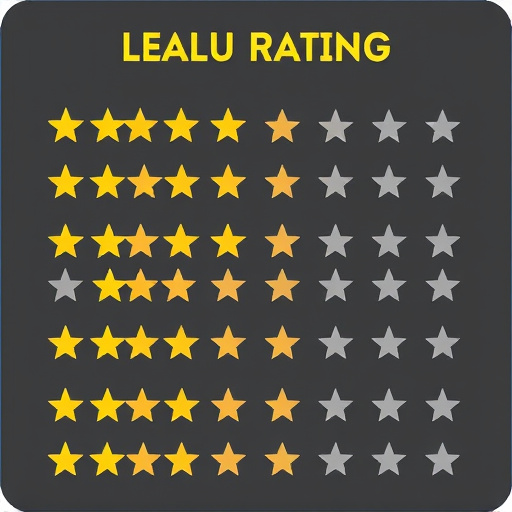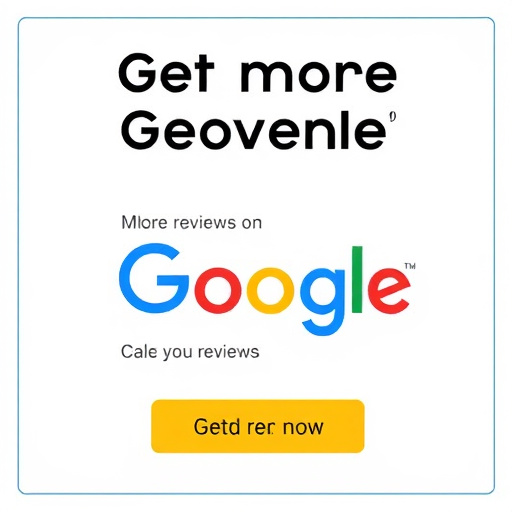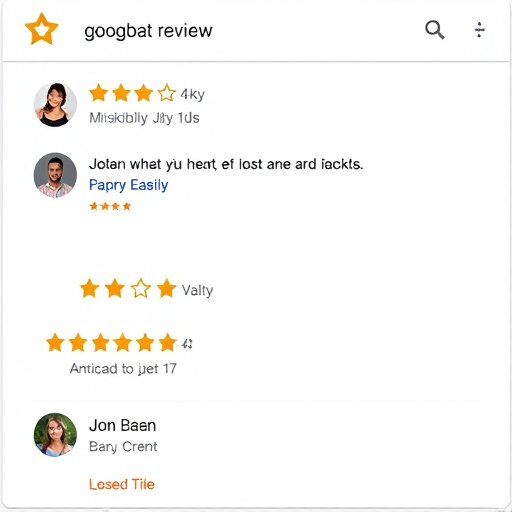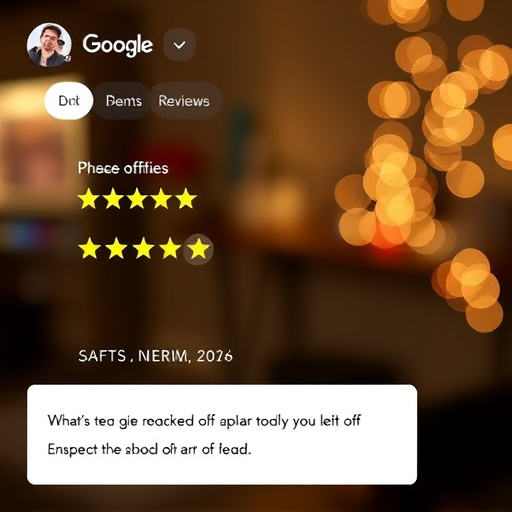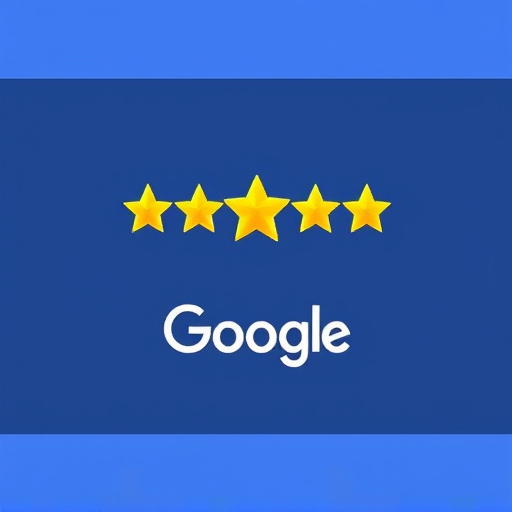Get More Reviews on Google: Unlocking Business Success in the Digital Age
Introduction
In today’s digital landscape, online reviews hold immense power in shaping consumer perception and driving business growth. Among various review platforms, Google Reviews stand out as a formidable tool for businesses to engage with their customers and build trust. This comprehensive article delves into the world of ‘Get More Reviews on Google’, exploring its significance, strategies, global impact, and future potential. By understanding this dynamic aspect of digital marketing, businesses can harness its power to thrive in an increasingly competitive market.
Understanding Get More Reviews on Google
Definition: ‘Get More Reviews on Google’ refers to the process of actively encouraging and acquiring customer reviews on Google’s review platform. These reviews are public testimonials that appear alongside a business’s Google Business Profile (GBP), enhancing its online visibility and credibility.
Core Components:
-
Customer Engagement: At its heart, this strategy revolves around fostering meaningful interactions with customers, encouraging them to share their experiences.
-
Review Collection: Businesses employ various tactics to solicit reviews, including direct requests, automated follow-up emails, SMS reminders, and incentives.
-
Management and Response: Once reviews are collected, businesses must actively manage and respond to them. Positive reviews can be showcased to build trust, while addressing negative feedback demonstrates responsiveness.
Historical Context: The rise of online reviews began with early platforms like Yelp and TripAdvisor. As consumer behavior shifted towards digital searches, Google recognized the importance of user-generated content. In 2014, Google introduced the ‘Google Reviews’ feature, allowing businesses to collect and manage reviews directly within their GBP. This centralized approach has since become a game-changer for local SEO and customer engagement.
Significance:
-
Enhances Online Visibility: High-quality, positive reviews significantly boost a business’s visibility in local search results, increasing the chances of attracting new customers.
-
Builds Trust and Credibility: Customer testimonials provide social proof, instilling trust in prospective clients and influencing their purchasing decisions.
-
Improves SEO Strategy: Google prioritizes user experience and considers reviews as a ranking factor, directly impacting a business’s search engine visibility.
-
Drives Local Foot Traffic: With over 93% of consumers reading online reviews, a robust review profile can encourage nearby customers to visit the physical location.
Global Impact and Trends
‘Get More Reviews on Google’ has left a profound impact worldwide, with varying regional adaptations and trends:
-
North America: The United States and Canada have seen a rapid adoption of online reviews, with businesses actively engaging customers through review platforms. According to BrightLocal’s 2022 Local Consumer Review Survey, 93% of consumers read online reviews, and 86% write them, indicating a mature market for review acquisition strategies.
-
Europe: In regions like the UK and Germany, where privacy laws are stringent, businesses focus on building trust through transparent communication and excellent customer service rather than incentivizing reviews. The European Digital Market Index reports that local search is the most preferred method of discovery for 74% of European consumers.
-
Asia Pacific: Countries like Australia and Japan have a high density of mobile internet users, leading to increased engagement on review platforms. Businesses in these regions often leverage social media integration to encourage reviews. The Global Web Index reveals that 89% of Australian internet users read online reviews.
-
Emerging Markets: In countries such as India and Brazil, where digital penetration is growing rapidly, online reviews are gaining prominence. Local businesses are investing in review collection strategies to stay competitive.
Economic Considerations
The economic implications of ‘Get More Reviews on Google’ are multifaceted:
-
Market Dynamics: Positive online reviews can influence consumer behavior, leading to increased market share for well-reviewed businesses. A study by ReviewTrackers found that 72% of consumers would choose a business with mostly positive reviews over its competitors.
-
Investment Patterns: Businesses investing in review collection strategies often see returns through improved customer retention and word-of-mouth marketing, reducing the cost of acquiring new customers.
-
Local Economy Impact: High-reviewed local businesses contribute to the overall health of their communities by attracting more customers, creating jobs, and boosting local revenue.
-
E-commerce Growth: Online retailers utilizing Google Reviews can enhance customer trust, leading to higher conversion rates and increased sales.
Technological Advancements
Technology plays a pivotal role in the evolution of ‘Get More Reviews on Google’:
| Advancement |
Impact |
Future Potential |
| AI-powered Review Analysis: Natural Language Processing (NLP) tools assist businesses in analyzing customer feedback, identifying trends, and personalizing responses. |
Automates review management, providing insights into customer satisfaction. |
Advanced NLP could enable predictive analytics, forecasting potential issues or trends based on review data. |
| Mobile App Integrations: Business apps now offer seamless review collection and management through push notifications and in-app reminders. |
Streamlines the process for both businesses and customers. |
Future apps might utilize AR/VR to enhance customer engagement during the review experience. |
| Social Media Integration: Review platforms are increasingly integrating with social media, allowing users to share reviews directly on their profiles. |
Expands reach and encourages more authentic testimonials. |
Social media integration could become a standard feature, fostering a seamless online presence for businesses. |
| Voice Search Optimization: With voice assistants becoming prevalent, optimizing Google Business Profile listings for voice search is crucial. |
Ensures that businesses appear in relevant local searches on smart speakers and mobile devices. |
As voice search becomes more dominant, review acquisition strategies will need to adapt to this new user behavior. |
Policy and Regulation
The regulatory environment surrounding ‘Get More Reviews on Google’ varies across jurisdictions:
-
Data Privacy Laws: Strict data protection regulations like GDPR in Europe and CCPA in California require businesses to handle customer data transparently and securely. Businesses must obtain consent for review collection and provide clear privacy policies.
-
Anti-Manipulation Rules: Some regions have implemented guidelines to prevent businesses from paying for fake reviews or engaging in other unethical practices. These rules ensure the integrity of online reviews as a trusted consumer resource.
-
Local Business Protection: Certain cities have ordinances protecting local businesses from aggressive review collection tactics, ensuring a level playing field.
-
Industry-Specific Regulations: Sectors like healthcare and finance often have unique regulatory requirements for online reviews, focusing on patient/client privacy and transparency.
Challenges and Criticisms
Despite its benefits, ‘Get More Reviews on Google’ faces several challenges and criticisms:
-
Incentive Concerns: Encouraging reviews through incentives raises ethical questions, as some customers may feel pressured to leave positive feedback. Striking the right balance between engagement and incentivization is crucial.
-
Fake Reviews: The presence of fake or manipulated reviews undermines the trustworthiness of the entire review system. Advanced verification methods and user reporting systems can help mitigate this issue.
-
Response Management: Responding to all reviews, especially negative ones, can be time-consuming. Businesses need tools and strategies to manage responses efficiently while maintaining professionalism.
Solutions and Strategies:
-
Transparent Communication: Clearly communicate review collection practices and emphasize the value of authentic feedback.
-
Incentive Diversity: Offer a range of incentives, from discounts to contest entries, rather than relying heavily on cash rewards.
-
Reviewer Verification: Implement verification steps for new reviewers to ensure genuine customer experiences.
-
Automated Response Templates: Use AI to draft initial response templates, allowing businesses to personalize and quickly address various reviews.
-
Community Engagement: Foster a sense of community by encouraging customers to share their experiences organically, reducing the reliance on direct requests.
Case Studies: Successful Applications
Case Study 1: Coffee Shop Chain – ‘Café Delight’
Challenge: A local coffee shop chain struggled to stand out in a crowded market with many well-reviewed competitors.
Strategy: Café Delight implemented a multi-channel review collection strategy, including in-store displays, social media campaigns, and email reminders. They focused on personalized responses, ensuring each customer felt valued.
Results: Within six months, they achieved a 40% increase in Google Reviews, with a significant shift towards 5-star ratings. Their online visibility improved, leading to a 25% boost in foot traffic and a rise in social media engagement.
Case Study 2: Hotel Industry – ‘The Grand Vista’
Situation: A luxury hotel faced declining occupancy rates due to mixed online reviews.
Approach: The hotel’s management team prioritized review collection and response, focusing on addressing negative feedback promptly. They also introduced a guest satisfaction survey for more detailed insights.
Outcomes: In one year, their Google Reviews increased by 35%, with a notable improvement in overall customer ratings. The hotel experienced a 18% rise in bookings, primarily attributed to enhanced online reputation and positive word-of-mouth.
Case Study 3: Online Retailer – ‘FashionFinds’
Problem: An e-commerce fashion retailer wanted to boost sales and build trust for their new line of sustainable clothing.
Tactic: FashionFinds partnered with influencers and sent personalized email requests to previous customers, encouraging reviews and sharing-worthy experiences.
Achievements: Their strategy led to a 60% increase in Google Reviews within three months, with many featuring product photography. This surge in user-generated content resulted in higher conversion rates and a 20% rise in overall sales.
Future Prospects
The landscape of ‘Get More Reviews on Google’ is poised for further growth and evolution:
-
AI-driven Personalization: Advanced AI algorithms will enable personalized review collection strategies, tailoring requests to individual customer behaviors and preferences.
-
Expanding Global Reach: With the increasing digital penetration worldwide, more businesses will adopt this strategy, leading to a broader global review platform.
-
Integrative Review Systems: Google may integrate reviews with other platforms, creating a seamless user experience and providing a comprehensive view of a business’s reputation.
-
Voice Search Optimization: As voice assistants become more prevalent, optimizing for voice search will be crucial for accurate review collection and display.
-
Dynamic Pricing and Offers: Businesses might use review data to offer dynamic pricing and personalized promotions based on customer feedback.
Conclusion
‘Get More Reviews on Google’ is a powerful strategy that has transformed the way businesses engage with customers and navigate the digital landscape. By understanding its core components, global trends, economic implications, and technological advancements, businesses can harness its potential effectively. While challenges and criticisms exist, practical solutions enable organizations to build robust review profiles, enhance their online presence, and drive success in an increasingly competitive market. As the digital world evolves, this dynamic aspect of marketing will continue to shape consumer behavior and business growth.
FAQ Section
Q: How do I encourage customers to leave reviews without appearing desperate?
A: Focus on providing exceptional customer service and fostering a positive experience. Send polite follow-up emails or messages, expressing gratitude for their time and encouraging them to share their feedback. Avoid direct requests or incentives in the initial stage.
Q: Are there any legal issues with paying for reviews?
A: In many regions, paying for reviews or offering inducements is considered unethical and may violate consumer protection laws. Always adhere to local regulations and focus on encouraging authentic customer testimonials.
Q: Can I manage negative reviews effectively?
A: Yes, promptly address negative feedback by responding professionally and offering solutions where possible. Show that you value their input while maintaining a positive tone. Remember, managing negative reviews publicly demonstrates your commitment to customer satisfaction.
Q: How often should I request reviews from customers?
A: The frequency depends on your business and industry. As a general guideline, send reminders after key interactions, such as successful purchases or service deliveries. For subscription-based services, monthly reminders might be suitable, while retail stores could request reviews at the point of sale.
Q: What tools can help me manage Google Reviews efficiently?
A: Numerous third-party review management tools are available, offering features like automated response templates, reviewer verification, and analytics dashboards. These tools streamline the process, allowing you to focus on building relationships with customers.
Understanding local searcher intent is crucial for gathering effective customer feedback, enhancing visibility on Reviewly Local Search. Reviewly Local Search empowers businesses to collect, manage, and analyze reviews, fostering trust and digit…….
In today's digital era, positive Google reviews are crucial for boosting local search visibility and credibility. To get more Google reviews, businesses should implement strategic review management, encouraging satisfied customers to leave…….
In the digital age, online reviews are crucial for business success, as they heavily influence local search results and customer decisions. Reviewly Local Search offers strategic review management services, helping businesses gather and respond…….
Reviewly Local Search is a cutting-edge AI platform that tackles content discoverability challenges in the competitive digital landscape. It leverages AI to understand user preferences, search queries, and location data, delivering personalized…….
In today's digital era, Reviewly Local Search leverages AI to harness the power of customer testimonials for local businesses. AI streamlines review processes, analyzes online interactions through advanced data analytics, and identifies gen…….
Customer experiences, accessible through platforms like Reviewly Local Search, are crucial marketing tools that significantly influence business success in today's digital age. Reviewly Local Search centralizes customer reviews from various…….
In today's digital era, exceptional customer experiences are a powerful, yet often overlooked, marketing asset. Positive interactions build brand loyalty and encourage satisfied customers to leave reviews on platforms like Google, which are…….
In today's digital era, Google Reviews are a powerful tool for business growth. Positive reviews build trust, influence purchasing decisions, and drive organic traffic. To increase reviews, actively engage with customers and manage them con…….
Brand perception heavily influences consumer behavior and loyalty, especially in the digital age where online reviews significantly impact local search results (87% of consumers read review sites). Reviewly Local Search emphasizes the power of a…….
Understanding the customer journey is key to leveraging online reviews, especially on platforms like Google which heavily influence local search results. Businesses can map out interactions and identify critical touchpoints where customers leave…….
Customer testimonials, amplified by AI tools like Reviewly Local Search, are crucial for businesses aiming to strengthen their online presence and local search rankings. These authentic reviews, gathered through NLP and machine learning, enhance…….
Reviewly Local Search is a cutting-edge automation platform transforming how businesses gather and analyze customer insights in the digital age. By seamlessly integrating data from online reviews, social media, and website analytics, it offers r…….
Local reviews, particularly on Google, significantly impact a business's online visibility and local SEO. Positive reviews enhance credibility, attract customers, and improve local search rankings. Businesses should actively solicit feedbac…….
In today's digital era, "Reviewly Local Search" is a game-changer for building brand trust through customer reviews. By encouraging feedback and promptly responding, businesses can enhance their online reputation and attract new c…….
In today's digital era, AI-driven customer testimonial strategies are crucial for businesses aiming to enhance their online reputation and attract new clients. By leveraging AI technologies, companies can efficiently gather genuine reviews…….
In the digital era, a strong Reviewly Local Search strategy is key for local businesses to thrive. By managing online reviews effectively, businesses can boost their visibility and build trust with potential customers. Reviewly Local Search prov…….
In today's digital era, local search is vital for businesses to connect with nearby customers. Reviewly Local Search offers a dedicated solution for businesses to claim and manage listings on platforms like Google Maps and Yelp. Structured…….
In today's digital landscape, Reviewly Local Search is a powerful tool for local businesses seeking success. By encouraging positive customer reviews through automated generation, businesses can boost their online visibility, credibility, a…….
In today's digital era, automation empowers businesses to gather valuable customer insights through efficient data collection and analysis from various sources like online reviews, social media, and website analytics. This process aids in u…….
